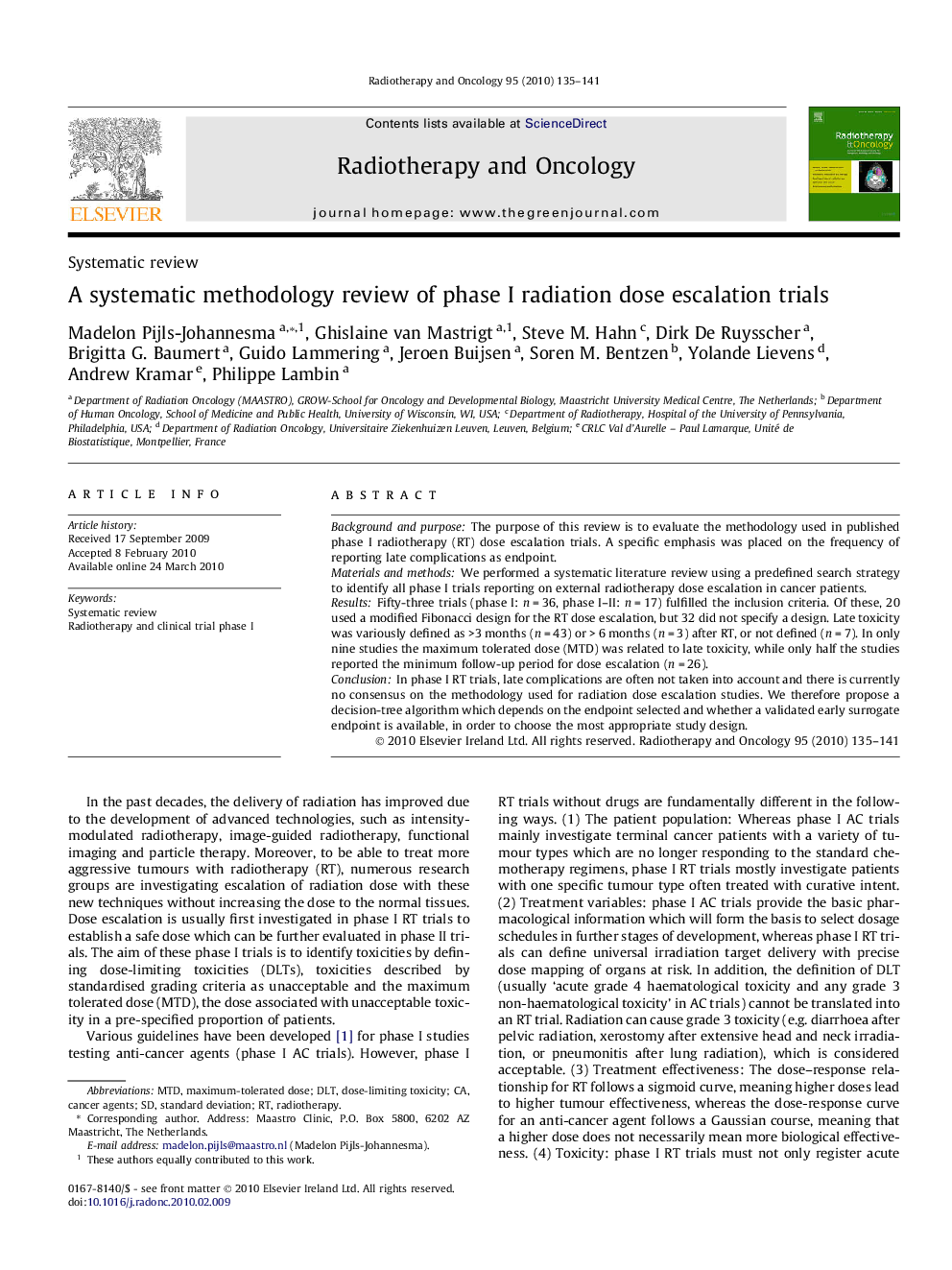| کد مقاله | کد نشریه | سال انتشار | مقاله انگلیسی | نسخه تمام متن |
|---|---|---|---|---|
| 2159397 | 1090857 | 2010 | 7 صفحه PDF | دانلود رایگان |

Background and purposeThe purpose of this review is to evaluate the methodology used in published phase I radiotherapy (RT) dose escalation trials. A specific emphasis was placed on the frequency of reporting late complications as endpoint.Materials and methodsWe performed a systematic literature review using a predefined search strategy to identify all phase I trials reporting on external radiotherapy dose escalation in cancer patients.ResultsFifty-three trials (phase I: n = 36, phase I–II: n = 17) fulfilled the inclusion criteria. Of these, 20 used a modified Fibonacci design for the RT dose escalation, but 32 did not specify a design. Late toxicity was variously defined as >3 months (n = 43) or > 6 months (n = 3) after RT, or not defined (n = 7). In only nine studies the maximum tolerated dose (MTD) was related to late toxicity, while only half the studies reported the minimum follow-up period for dose escalation (n = 26).ConclusionIn phase I RT trials, late complications are often not taken into account and there is currently no consensus on the methodology used for radiation dose escalation studies. We therefore propose a decision-tree algorithm which depends on the endpo
Journal: Radiotherapy and Oncology - Volume 95, Issue 2, May 2010, Pages 135–141